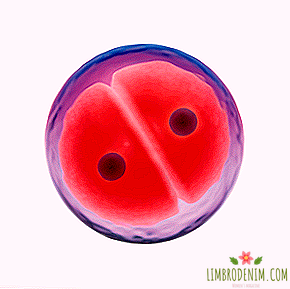Alzheimer's Disease: 6 myths about dementia and memory loss
There are more than fifty million people with dementia in the world, and the risk increases with the increase in life expectancy: after 65 years it doubles every five-year period. The diagnosis of dementia means a dysfunction of the brain with a gradual loss of knowledge and skills - and every sixth person is over 80, every third over 85, every second after 90 years. It is estimated that in ten years there will be more than 80 million people with dementia, and after thirty more - 152 million. In the US, this disease takes more lives every year than breast and prostate cancer combined. At the same time for the diagnosis itself stretches a train of conjectures and myths - we understand the most common.

Dementia and Alzheimer's are the same thing.
In fact, dementia is a syndrome (i.e., a combination of symptoms) that can have many causes, and one of them is Alzheimer's disease. This disease explains up to 70% of all cases of dementia. Less commonly, impaired cognitive function can be caused by impaired cerebral circulation, Parkinson's disease, reduced thyroid function, chronic infections of the brain, and even some medications. That's not all: sometimes deep depression is masked as dementia, and in other cases depression is one of the symptoms of dementia. Such confusion, of course, makes diagnosis difficult.
About Alzheimer's disease is now known that it arises due to the abnormal accumulation of certain proteins in brain cells and the extracellular space. One of these proteins is amyloid, which is deposited in the form of plaques around nerve cells. The second is the so-called abnormal protein structure of tau, or tau protein, which is visible as tangles in the nerve cells themselves. Normally, tau protein should stabilize microtubules (the components of the framework that support cells intact), but in Alzheimer's disease, this protein changes its structure. It is not yet known why this is happening - but scientists already know that these changes begin many years before the first symptoms appear. Such accumulation of proteins in brain cells and around them changes the biochemical properties of these cells and prevents them from working normally - signal transmission between them is disrupted. The first are usually affected areas of the brain responsible for memory.
Dementia and Alzheimer's disease are only in the elderly.
Although age is a serious risk factor, dementia is also found in young people. At the same time, a person gradually loses the skills accumulated for life, speed of thinking, ingenuity, speech, the ability to control mood and body - and the causes can be alcohol abuse, addiction to drugs, brain tumors, brain injuries or infections. The formation of amyloid plaques is also characteristic of Down syndrome, that is, in people with it the likelihood of dementia is increased. Alzheimer's disease also has an early form, when diagnosed at the age of about forty years. Every twentieth patient with Alzheimer's disease has not yet crossed the milestone of sixty-five years.
The cause of Alzheimer's disease is only a genetic failure.
A gene of increased susceptibility to the disease is actually found, it is called APOE epsilon 4 - but even among people with this gene, only half to ninety years old develop dementia. Consultation genetics may be useful for those with dementia that have occurred in several generations of the family - for example, there are familial forms of Alzheimer's disease, but they are quite rare. And although the exact causes of dementia and Alzheimer's disease have not been established, it is already clear that genes are not the main thing. In particular, the actual increase in risk due to genetic damage is much lower than due to a sedentary lifestyle.
The identified risk factors are over 65 years of age, traumatic brain injuries and diseases of the cardiovascular system. Doctors methodically urge to fight against smoking, obesity, arterial hypertension and elevated cholesterol - these are factors that contribute not only to myocardial infarction, stroke, some malignant tumors, but also the development of Alzheimer's disease. In addition, recent studies show the importance of other factors indirectly responsible for the development of the disease. These are hearing loss, untreated depression, social isolation and a sedentary lifestyle.

The diagnosis is made only on the basis of memory impairment.
If you regularly try to remember if the iron is turned off and the door is locked with a lock, do not panic. Slight memory impairment may be due to age-related changes, work stress, or lack of sleep. Although a breach of short-term memory may indeed be the earliest manifestation of an approaching Alzheimer's disease, usually this deterioration is at least more pronounced than can be expected for the patient's age. Other symptoms typical for the initial stage of dementia are difficulties with counting time, disorientation in one’s own apartment, problems with speech and tasks like paying bills.
In order to diagnose dementia and determine its type, the doctor needs to talk to the patient and his family members — including actually conducting tests that help assess memory, thinking, and the level of deviations. But the cause of dementia can be, for example, an infection, a tumor, an injury or a thyroid disease. Therefore, the examination should include blood tests, detailed questioning and, possibly, MRI of the brain. There are strict diagnostic criteria for dementia and Alzheimer's disease, described in the manuals for physicians.
Alzheimer's Disease Cannot Be Slow
Immunotherapy - the use of drugs to help activate your own immune system against harmful cells or substances - has revolutionized several areas of oncology (for example, in some patients it has eliminated all manifestations of melanoma, previously fatal in 100% of cases). It is assumed that immunotherapeutic agents can turn over and treat dementia - and now several of these drugs are in development. Research takes many years, and some potential drugs have already fizzled out. Nevertheless, at least three immunotherapeutic antibodies (gantenerumab, krenezumab and BAN2401) are being studied or are about to be studied in studies of the third phase, including in people with an early stage of the disease.
The results of the second-phase study, BAN2401, were presented in July 2018: patients with early-stage Alzheimer's disease who received the drug did a much better job with the cognitive test than those who received placebo. A decrease in the amount of amyloid in the brain has also been reported. Results persisted after six and twelve months and were found to be encouraging. It is possible that the next phase of research will begin in the coming years, the BAN2401 will acquire a full name and, if everything goes well, it will be registered.
There are already drugs that can control the individual manifestations of Alzheimer's disease. When memory impairment is used, cholinesterase inhibitors (donepezil, rivastigmine, galantamine) suppress the cholinesterase enzyme, they increase the level of acetylcholine, a substance that helps neurons interact with each other. Previously, these drugs were prescribed only in the early stages, but their efficacy has also been recently confirmed in severe stages of dementia. Another drug (memantine) is somewhat different in its mechanism of action and can be administered in combination with them. Depending on the associated dementia problems, antidepressants, anti-anxiety, sleeping pills are used.
The individual symptoms of the disease respond to non-pharmacological behavioral therapy. This may be cognitive-stimulating therapy, which involves group exercises aimed at improving memory and problem solving skills. The doctor may recommend promoting physical activity, exclusion of triggers of a bad mood (for example, remove a certain photo from a prominent place), communication with pleasant people. Another method of treatment is the use of the phenomenon of the reminiscence in a digital or real version. It is based on a conversation about objects or events from the past. This is a discussion of photographs, memorabilia or music that help improve mood and well-being.
If destined to get sick, then so be it
Unfortunately, there is no guarantee that brain training and lifestyle changes will prevent all types of dementia - but this is no reason not to try. There are ways that reduce the risk of illness or push it back - they can be boring, trite and time consuming, but they work. The bottom line is not to let the brain idle: you need to train short-term memory, attention, speech, logic, reaction time, hand-eye coordination.
New impressions contribute to the work of the brain - so you should learn how to at least stir sugar in coffee with your left hand (or your right hand if you're left-handed). Studying new languages, memorizing poetry, memorizing a to-do list, new music, drawing, lectures at the nearest institute or online courses, volunteering - all this enriches us with new impressions, which means that it trains the brain. In addition, it is necessary to maintain weight within the medical norm, to eat varied, get enough sleep, move more and stop smoking.
Photo: linjerry - stock.adobe.com





